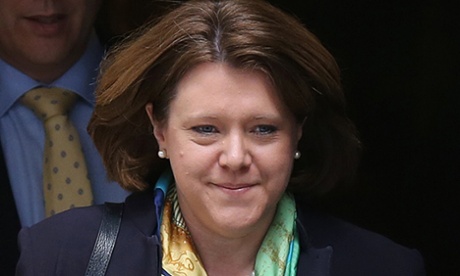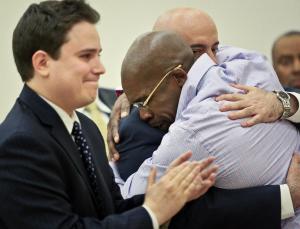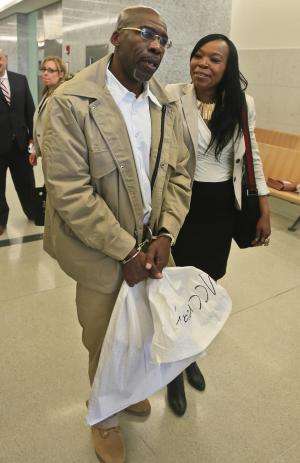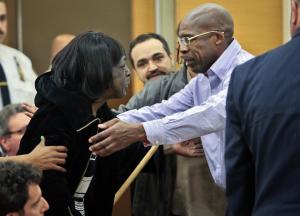DONETSK, Ukraine — The country’s new interior minister vowed Wednesday morning to use force against pro-Russian protesters unless they leave government buildings they have occupied in eastern Ukraine by Friday, and armored personnel carriers were spotted gathering in the city of Luhansk.
Politicians in the region who were associated with the previous, ousted, government scrambled to find a resolution. They voiced sympathy for the protesters but made it clear they do not favor a breakup of Ukraine or a protracted occupation of government property.
“Those who have occupied buildings, especially those with weapons, pose a danger to everyone in Donbass,” said Nikolai Levchenko, a leading member of the Party of Regions here in Donetsk, the center of the Donbass region. Donetsk has been a stronghold of the party, formerly led by Viktor Yanukovych, the ex-president.
Without the support of the party that has most strongly favored good relations with Moscow, the several hundred separatist protesters occupying buildings here and in Luhansk are left with little public backing.
In Luhansk, 56 people left the occupied headquarters of the security police Wednesday morning, a day after the government claimed there were about 60 hostages inside. The release followed a visit by Serhiy Tihipko, until recently with the Party of Regions, to try to find a resolution. He said there were no hostages, and it’s not clear who the 56 people were.
Levchenko called on the pro-Russian agitators to free the buildings they have seized, and allow the government to get back to work. “If I feel people are in danger, I will be with them,” he said, referring to the threat of an armed attack by forces loyal to Kiev, but he suggested that that could be avoided if the protesters go home.
An obstacle to a definitive resolution to the crisis, he said, is that there is no single point of view. People on the square in front of the administrative building want everything from Russian annexation to independence to decentralization of the Ukrainian system. Nothing, he suggested, can make everyone happy.
Andrei Shishatsky, the former governor who was fired after Yanukovych fled the country in February, said firmly at a press conference here, “Donbass will be part of a unified, independent Ukraine.”
In Kiev, the interior minister, Arsen Avakov, said, according to Reuters, “There are two options - political negotiations, and force. For those who want dialogue, we propose talks and a political solution. For the minority who want conflict, they will get a forceful answer from the Ukrainian authorities.”
Authorities in Kiev insist that Russia is looking for a pretext to invade, and that Moscow is stirring up trouble to create one. American officials have expressed the same fears.
The Russian foreign ministry denied any such intention in a statement posted Wednesday.
“The U.S. and Ukraine have no reasons for concerns,” it said. “Russia has said many times that it is not conducting any unusual or unplanned activities significant in terms of military issues on its territory in the area of the Ukrainian border.”
But Russian troops remain near the border conducting exercises, and Secretary of State John F. Kerry on Tuesday echoed the Ukrainian allegation that Russians are fomenting trouble.
“It is clear that Russian special forces and agents have been the catalyst behind the chaos of the last 24 hours,” Kerry said in testimony before a Senate committee. He said the unrest “could potentially be a contrived pretext for military intervention just as we saw in Crimea” and warned of harsh new sanctions if Russia invades.
Right-wing Russian nationalist groups have been seeking volunteers through social media to go to Ukraine, but it is not clear whether those appeals have borne fruit.
Pro-Russia protesters in three eastern Ukrainian cities simultaneously attacked government buildings Sunday night. In Kharkiv, they were ousted by police early Tuesday. But in Donetsk and in Luhansk, the separatists have held tight. They have declared a “people’s republic” but have made it clear that they favor Crimean-style annexation by Russia.
Levchenko said Wednesday that some of the protesters are indeed seeking help from what he sarcastically termed a “neighboring, fraternal country.” But, he said, “we have to solve our problems ourselves, without the interference of any foreign countries, including countries in Europe and the United States.”
The main issue here, he said, is economic recovery — and that’s what the government should be focused on.
More than a dozen passengers on a flight from Moscow were pulled aside at passport control Tuesday, as Ukraine attempts to bar those it suspects of causing trouble.
As evening fell and people got off work, the crowd outside the occupied regional administration building in the city swelled to a few thousand. Barricades of tires, automobile bumpers, barbed wire and sandbags rose along the perimeter of the 11-story late-Soviet slab of a building.
The police presence appeared extremely light, and those officers who were at the site, in regular uniforms, made no effort to restrict access. Women on the plaza in front of the building merrily chanted, “Together we’re here to the end” and “Donetsk is a Russian city.”
A group broke into song, belting out a World War II favorite about Katyusha rockets.
But a block away, traffic moved as usual. This is not a city in the grip of secession fever — or anti-secession fever. On a warm spring afternoon, the playgrounds were full of children, couples strolled, shoppers shopped. Politics stops about 100 yards from the center of the action.
And, yet, the fate of the country hangs in the balance.
Donetsk, about 50 miles west of the Russian border, has strong ties, economic and otherwise, to Russia, and distaste for the new government in Kiev runs strong here. But support for secession appears to be thin among the city’s 1 million residents.
On Monday evening, one of Ukraine’s richest men, the coal baron Rinat Akhmetov, met with protesters and, although expressing sympathy and support, urged them to talk with the Kiev government. He strongly denies allegations surfacing in the Ukrainian news media that he has helped finance the pro-Russia demonstrations.
Yet it’s difficult to know, as the two sides become more polarized, how the crisis might play out.
Protesters were cleared overnight from the regional administration building in Kharkiv, Ukrainian Interior Minister Arsen Avakov said.
“The Kharkiv night was infinitely long,” Avakov wrote on Facebook. He said protesters threw stun grenades at National Guard soldiers and set a fire in the building’s lobby. Firefighters put out the blaze.
The West has been warning Russia, which annexed Ukraine’s Crimean Peninsula last month, against any incursion into eastern Ukraine. “If Russia were to intervene further in Ukraine, it would be a historic mistake,” NATO Secretary General Anders Fogh Rasmussen told reporters Tuesday in Paris. “It would have grave consequences for our relationship with Russia and would further isolate Russia internationally.”
Russia blames U.S.
In Moscow, Russian Foreign Minister Sergei Lavrov said Tuesday that the United States, not Russia, is responsible for sowing discord in Ukraine. “Our American partners are trying to assess the situation,” Lavrov told reporters, “applying their habits to others.”
The Russian Foreign Ministry charged that ultranationalists from Ukraine’s Right Sector movement and American mercenaries were among the police force Kiev sent to eastern Ukraine to quell the violence.
“We are particularly concerned that the operation involves some 150 American mercenaries from a private company Greystone Ltd., dressed in the uniform of the [Ukrainian] special task police unit Sokol,” the ministry said in a statement posted on its Web site Tuesday morning. It called for an immediate halt to “all military preparations which could lead to a civil war.”
Ukrainian officials denied that any mercenaries or irregular forces are at work in eastern Ukraine.
“There is no Right Sector, let alone U.S. security forces, in Kharkiv, Donetsk or Luhansk,” Serhiy Pashynsky, chief of the presidential administration in Kiev, said Tuesday. The Ukrainian Foreign Ministry issued a similar denial.
Earlier reports in Russian news media identified Greystone as a subsidiary of the private security firm once known as Blackwater and later renamed Academi.
Two weeks ago, Russia’s Itar-Tass news agency quoted Ukrainian government security sources as saying that they intended to hire private military personnel from Greystone “to suppress” the eastern, Russian-speaking regions of Ukraine. In early March, Russian state television reported that several hundred armed Greystone employees had flown into the Kiev airport.
A woman who answered the phone at Greystone’s offices in Chesapeake, Va., declined to comment Tuesday. She identified herself only as “an employee of Greystone.”
In Washington, a senior Pentagon official told a House committee Tuesday that the United States is extending the stay of the destroyer USS Truxtun in the Black Sea and will send another ship there in a week. The Truxtun was dispatched last month to conduct training with the Romanian and Bulgarian navies, a mission scheduled before the Ukraine crisis erupted.









